Many cooperatives and farmers in the Mekong Delta have applied QR codes to trace the origin of products. In the photo: Traceability of OCOP durian products of Ms. Thao ( Can Tho City).
The trend cannot be reversed.
Associate Professor Dr. Chau Minh Khoi, Vice Rector of the College of Agriculture , Can Tho University, shared: The workshop with the theme of digital transformation in sustainable agricultural development is part of the program of connecting startup networks to promote innovative startup activities in the Mekong Delta region. The theme is both urgent and strategic when our country's agriculture is facing many intertwined opportunities and challenges. The workshop aims to build and connect an innovative startup network in the field of high-tech agriculture in the Mekong Delta region. This is also an opportunity for experts, businesses and startup support organizations to share experiences, discuss and find practical solutions to promote innovative startups, bringing high-tech agriculture to develop sustainably in the digital age.
Our Party and State have had many major policies to promote science and technology, innovation and digital transformation. Notably, Resolution No. 57-NQ/TW dated December 22, 2024 of the Politburo on the development of science, technology, innovation and national digital transformation affirms that "science and technology, innovation and digital transformation are key driving forces for the country's rapid and sustainable development". Grasping that spirit, the agricultural sector has been promoting the application of high technology, digital data and modern management models across the entire value chain from production, processing to consumption to gradually build a green, modern and sustainable agriculture.
According to Dr. Truong Minh Thai, School of Information and Communication Technology, Can Tho University, in the Mekong Delta, the application of sensor technology and information technology in monitoring environmental conditions can help managers, farmers, and cooperatives monitor factors of the pond environment, water environment, and soil conditions in real time. From there, timely solutions can be taken to minimize risks, reduce costs, and improve product quality. In addition, the application of big data and artificial intelligence (AI) in precision agriculture is also gradually being widely deployed, such as the application of AI to assess the undulations on the surface of rice fields, distinguish weeds, and assess rice density in the fields...
It can be seen that the Mekong Delta is gradually forming a smart agricultural ecosystem: IoT - sensor devices with Internet connection and automatic control; LED technology helps optimize the growth process of crops; cultivation in greenhouses, net houses, using hydroponic and aeroponic technology to isolate the natural environment, proactively synchronizing technology; solar energy - helps reduce energy costs; robots - reduce labor costs; AI/Bigdata - data analysis to give the best recommendations to users...
Flexible in the new context
According to Ms. Bui Thi Thuy Tien, Vietnam Institute for Digital Economic Development, applying digital technology in agriculture will help farmers, cooperatives, and businesses improve production processes and increase productivity. At the same time, effectively manage resources through saving water and fertilizer, reducing waste and environmental pollution. In the distribution and market access stages, digital transformation will create a communication channel and connect directly with consumers. However, the digitalization process of the agricultural sector is facing many challenges due to high initial investment costs; limited network infrastructure and uneven coverage; some people and businesses are not fully aware and are not bold in applying digital technology.
Ms. Bui Thi Thuy Tien proposed that the current solution is to solve existing problems through technology investment with the selection of technology suitable to the scale and agricultural conditions of the locality. At the same time, the State needs to innovate policies and provide funding to encourage the application of technology in agriculture. In addition, training and technical advice to raise awareness for farmers, businesses and cooperatives is a must at this time.
Emphasizing the role of institutes and schools in start-up activities, innovation and digital transformation, Associate Professor Dr. Chau Minh Khoi said that universities are not only places to train professional knowledge but also incubators of ideas, where high-quality start-ups are formed and developed. Our Party and State always consider and encourage start-ups in universities as part of the national strategy to promote innovation, develop the knowledge economy and build a sustainable start-up ecosystem.
“The Government has issued many programs, guidelines and policies to promote the development of start-up and innovation activities in universities. In particular, Decision No. 1655/QD-TTg approving the project to support students in starting a business until 2025. The University of Agriculture has strengths in agriculture, aquaculture, environment, biology, post-harvest technology... This is an important foundation to promote agricultural start-ups among students as well as connect research knowledge with practice and contribute to local development,” said Associate Professor, Dr. Chau Minh Khoi.
According to MSc. Nguyen Van Minh, Director of the Center for Biotechnology Research and Application, Ho Chi Minh City Open University, humans are living in a context of “unprecedentedly fast” technological development. An idea can become a product in 3 months; a first-year student can write an app for millions of users; an emerging technology startup can surpass a traditional corporation in just a few years. However, we must recognize that the big problems of the world today cannot be solved by a single industry.
“For example, the environmental crisis requires biology, technology, policy, and education; food safety and sustainable agriculture are not just about agriculture, but also logistics, finance, communication, and biotechnology. Or talking about innovative startups, it requires not only ideas, but also strategy, technology, finance, design, law, and marketing. That shows that it takes interdisciplinary coordination and a combination of many perspectives to create comprehensive, breakthrough solutions,” added Master Nguyen Van Minh.
Article and photos: MY THANH
Source: https://baocantho.com.vn/chuyen-doi-so-nong-nghiep-gan-ket-tri-thuc-cong-nghe-thi-truong-a191565.html


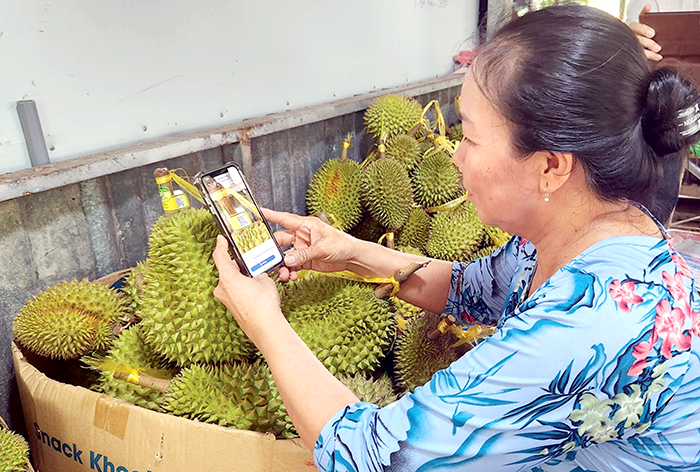
![[Photo] Keep your warehouse safe in all situations](https://vphoto.vietnam.vn/thumb/1200x675/vietnam/resource/IMAGE/2025/10/1/3eb4eceafe68497989865e7faa4e4d0e)



![[Photo] Hanoi morning of October 1: Prolonged flooding, people wade to work](https://vphoto.vietnam.vn/thumb/1200x675/vietnam/resource/IMAGE/2025/10/1/189be28938e3493fa26b2938efa2059e)
![[Photo] President of the Cuban National Assembly visits President Ho Chi Minh's Mausoleum](https://vphoto.vietnam.vn/thumb/1200x675/vietnam/resource/IMAGE/2025/10/1/39f1142310fc4dae9e3de4fcc9ac2ed0)

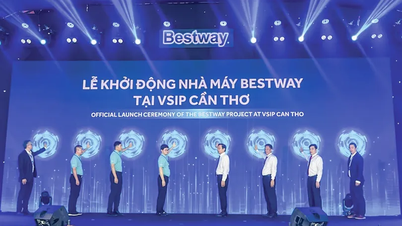


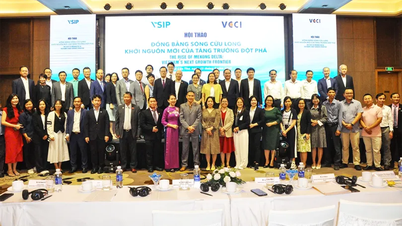


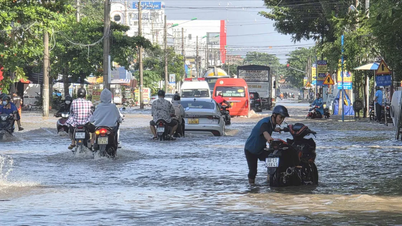



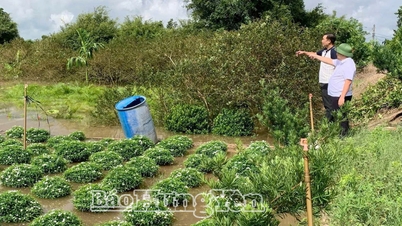

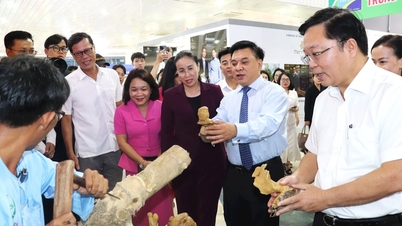

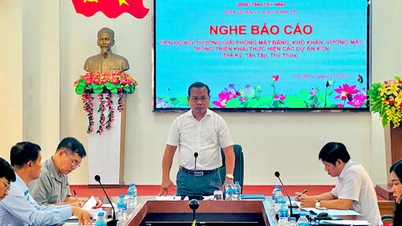

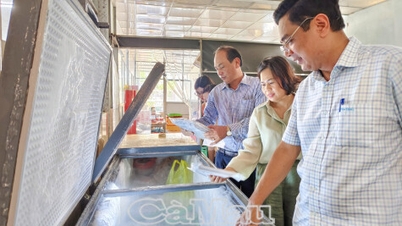
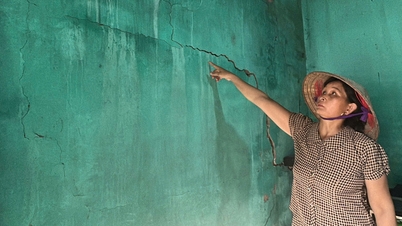





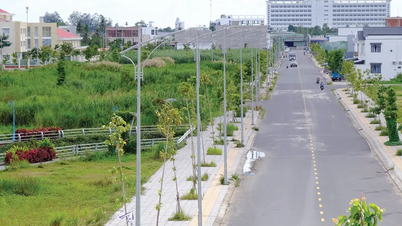
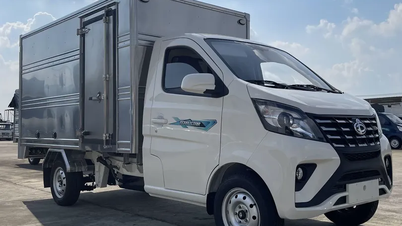

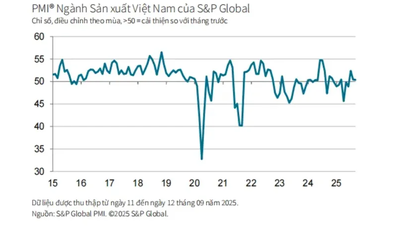
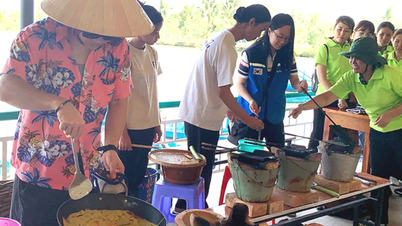
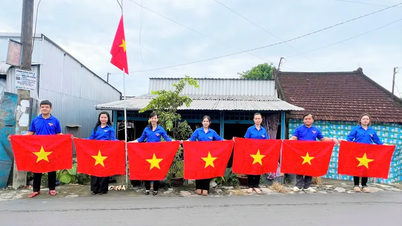































































Comment (0)